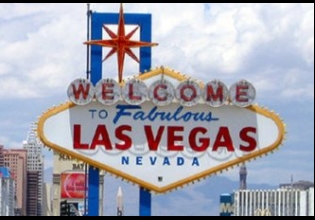
It was expected to be a formality, and it was. In a unanimous 4-0 vote Thursday, the Nevada Gaming Commission approved Regulation 5A, which sets the rules for intrastate online poker, including operator licensing requirements.
As it stands now, any operator who obtains an online poker license will be restricted to offering games to customers within Nevada state borders. Make no mistake, though: this is a move with eyes towards the future of nationwide online gaming. In all but the most populous states, intrastate online poker is not viewed as something that will be a revenue windfall, as it will be extremely difficult for the poker rooms to build up a large enough customer base. But should online poker, and other online gaming for that matter, become fully legalized and regulated on the federal level, Nevada could be setting itself up for a payday down the road. The state hopes to use its resources in brick and mortar gaming to establish itself as the nation’s leader in online poker licensing, so that when and if the entire U.S. market is opened up, online poker operators will establish roots in Nevada.
While nothing is on the immediate horizon in regards to federally regulated online poker, there has been a recent ray of hope, as the U.S. Department of Justice just announced a revised stance on the Wire Act of 1961, saying that it only applies to sports betting, not online poker or other gambling.
A number of companies, including International Game Technology, Bally Technologies, Cantor Gaming, Caesars Entertainment Corp., and Boyd Gaming Corp. have already applied for Nevada online poker licenses. Operators who are already licensed for brick and mortar gaming Nevada should have a fairly easy time getting licensed for online poker, as they have already met the bulk of the requirements. They will still have to show that their technology is up to snuff, however, and demonstrate capabilities such as the ability to keep children and those from other states off their sites.
“We’ve taken our brick-and-mortar operational standards to a new level,” Gaming Control Board Chairman Mark Lipparelli said at the U.S. Online Gaming Law conference last month. “We’re going to continue to be flexible, but we think we’ve set the bar high for licensing and suitability.”
Some of the highlights of the regulations include:
• Legal online gambling age will be 21.
• Licensees will be required to maintain a revolving fund of $20,000 to pay for compliance investigations.
• Players may only have one account at a given operator and may not use fake names.
• Credit cards are allowed as a means to deposit player funds.
• Inter-account transfers between players are not permitted.
• Hand histories must be kept by the operator for five years.
• Operators must take proactive steps to prevent bot use.
In a report on the online poker market, Union Gaming Research analyst Bill Lerner wrote that while the commercial prospects for intrastate online poker in Nevada are fairly minimal, “structurally it will become an important model for other states to follow.”


















